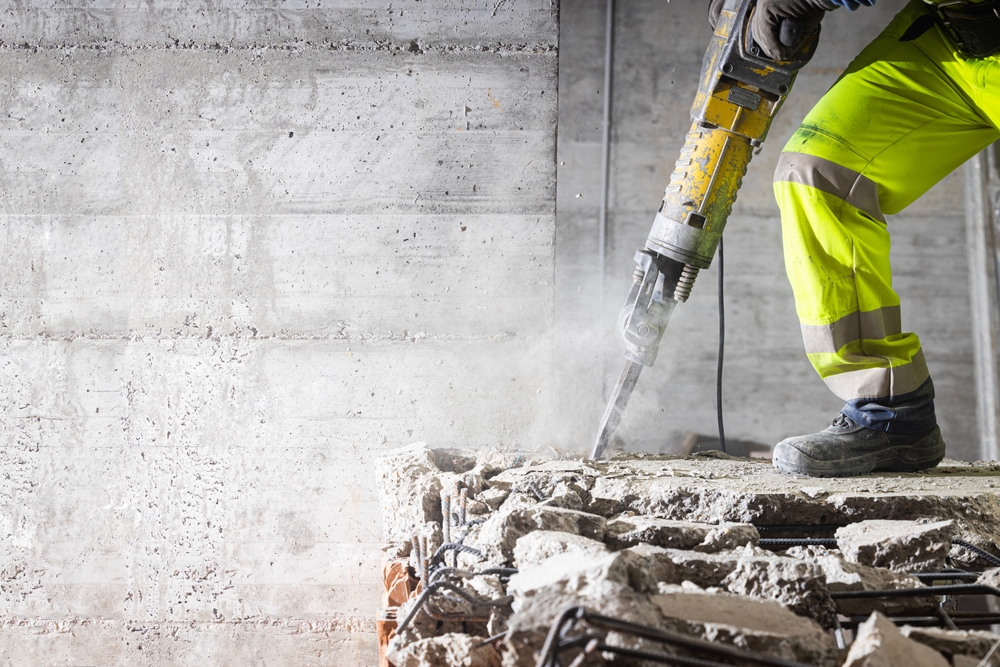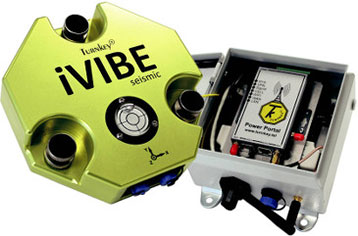Unwanted vibrations can be harmful for a number of reasons, including the fact they can cause structural damage.
Continuous vibrations can weaken structures over time. If the frequency of the vibrations matches the resonant frequency of the object, it can cause mechanical stress and potential damage, leading to the wearing-out and even failure of the material.

Vibrations can also cause noise and discomfort, which can have a negative impact on our mental and physical health.
Vibrations often come with noise, which can be annoying or disturbing, affecting comfort levels, concentration, and even causing health issues like headaches or disturbed sleep.
Prolonged exposure to vibrations, especially at high intensities, can have negative effects on our physical health. For instance, it can lead to conditions like hand-arm vibration syndrome (HAVS) or whole-body vibration (WBV) syndrome, causing discomfort, pain and long-term health issues in more extreme cases.
Then there’s the fact that vibrantions can interfere with machinery.
Vibrations can interfere with the operation of machinery, causing them to be inaccurate or even malfunction. For instance, precision instruments, sensitive equipment and machinery demand stability and lack of vibrations to function accurately.
In some cases, vibrations also lead to safety hazards. For instance, in some vehicles, excessive vibrations can affect their handling, potentially leading to accidents. In industrial settings, vibrations can cause spills, equipment malfunction or even injuries to your staff.
Reducing or eliminating unwanted vibrations is crucial to maintain structural integrity, ensure the proper functioning of machinery and equipment, and protect both the environment and human health.
Our vibration testing equipment can be used to simulate and assess how products or materials will respond to various levels and types of vibrations.
It’s ideal for use across various different industries, including for quality assurance applications.
Vibration testing equipment helps ensure product reliability by subjecting them to vibrations similar to those they might encounter during transportation, usage, or in various environments. This ensures the product can withstand these conditions without failure.

Our products include the iVibeseismic which provide users with the measurements and data required to effectively monitor noise and vibration levels. This will easily ensure the compliance of your site.
Reduce the risk of failures due to vibrations.
For products used in critical applications like aerospace, automotive, or medical devices, vibration testing ensures they won’t malfunction or pose risks due to vibration-induced failures.
Many industries have specific standards and regulations that products must meet regarding their ability to withstand vibrations. Testing ensures compliance with these standards.
Vibration testing equipment that’s ideal for research and development.
Engineers use vibration testing during the development phase to understand a product’s weak points, structural integrity, and to refine designs for better durability.
It can also be used for preventative maintenance. Our vibration and noise testing equipment is ideal for industries like manufacturing. It helps predict potential failures in machinery, allowing for proactive maintenance before catastrophic breakdowns occur. Market sectors where it’s used include our noise and vibration monitoring equipment include:
- Construction sites. It helps assess the quality of materials used in construction, like concrete, to ensure they meet the required standards. Vibration tests can reveal weaknesses, inconsistencies, or air pockets that might compromise the structure’s integrity. Vibrating equipment simulates the stress and strains that structures endure during their lifetime. This helps builders understand how materials will perform under real-world conditions, ensuring the longevity and safety of the construction.
- Quarries. Quarries often involve heavy machinery and blasting activities. Vibration testing helps assess the impact of these activities on the structural integrity of nearby buildings, infrastructure, and natural formations. It ensures that operations do not cause any significant damage. It also helps to evaluate the impact of noise and vibrations on the surrounding environment, including nearby residences, wildlife, and ecosystems. It ensures that the quarry operations adhere to environmental regulations and minimise disturbances.
- Industrial sites, such as waste sorting sites. Assessing how machinery or structures respond to vibrations can prevent catastrophic failures, ensuring the safety of workers and the surrounding environment.
- Oil and gas plants. Oil and gas operations involve heavy machinery and equipment. Vibration testing helps ensure that this equipment can withstand the constant vibrations produced during their operation, thereby enhancing their reliability and longevity. Vibrations can potentially cause structural weaknesses in equipment, leading to failures or malfunctions. Testing helps identify potential issues before they become safety hazards, reducing the risk of accidents or equipment failures that could harm workers or the environment.
- Road and site traffic. Roads endure a lot of stress from traffic, weather and other environmental stressors. Vibration testing helps assess how well they hold up under these conditions. Engineers subject road sections to vibrations to mimic the stresses caused by vehicles passing over them, enabling them to assess the road’s durability and potential weaknesses.
- Airports. Ensuring the structural integrity of buildings, runways, and infrastructure is crucial. Vibration testing helps identify potential weaknesses caused by aircraft takeoffs and landings, enabling necessary maintenance or repairs to prevent accidents. It’s also vital for testing the noise and environmental impact. Vibration testing helps assess the impact of airport operations on the surrounding environment. It aids in measuring and mitigating noise pollution and ground vibrations caused by aircraft, which can affect nearby communities.
In short, our vibration testing equipment is ideal for ensuring product reliability, safety and compliance with standards in a range of industries. Find out more about our noise and vibration testing monitors. Or simply get in touch with our team for more information.


